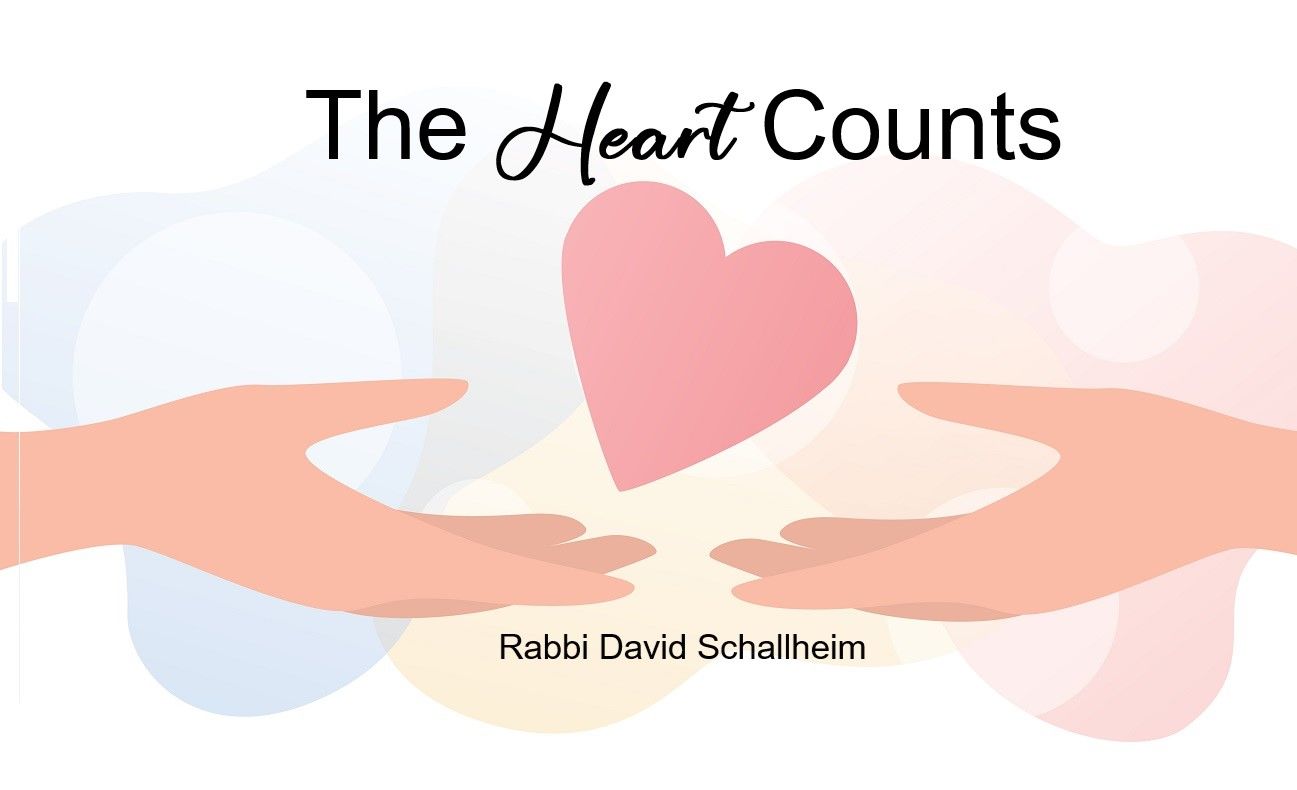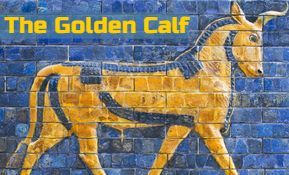
Yitro: Preparation for Matan Torah
Any worthwhile endeavor in life requires preparation. When I was a Boy Scout, I learned the Scout’s Motto: “Be prepared.” Before embarking on a camping trip...

Any worthwhile endeavor in life requires preparation. When I was a Boy Scout, I learned the Scout’s Motto: “Be prepared.” Before embarking on a camping trip, we made sure to have our equipment and supplies ready.
What preparation is needed for the most sublime spiritual achievement in the history of mankind: Matan Torah — the Giving of the Torah on Mount Sinai?
“In the third month of the Children of Israel’s departure from Egypt, on this day they arrived in the desert of Sinai. They journeyed from Rephidim, and they arrived in the desert of Sinai, and they encamped in the desert, and Israel encamped there opposite the mountain” (Shemot 19:1-2).
The Ohr HaChaim asks why the Torah states that the Jews arrived in the desert of Sinai, and only afterwards mentions that they journeyed from Rephidim. Any travel agent will tell you that that is not the way to plan an itinerary! The point of departure should be mentioned before the final destination.
God Loves the Jewish People
The Ohr HaChaim’s explanation provides us with an inspiring message of how God’s love for the Jewish people disrupted the normal order of things:
“This [the giving of the Torah] was the day that was awaited by the Creator, the Torah and the entire universe, in both the spiritual realms and the earthly realms. From the beginning of Creation, they waited for the Children of Israel to arrive at the desert of Sinai. When they arrived, the Torah couldn’t wait to relate the facts in chronological order and immediately informed us that ‘on this day they arrived in the desert of Sinai.’ The long-awaited guests had finally arrived in the arms of the One who longed for them. The heavens and earth rejoiced, for this was the purpose and hope of the entire Creation. The following verse speaks about the chronological order of things.”
The Ohr HaChaim’s explanation, however, raises a new question. Why does the Torah go back and repeat that they came from Rephidim to the Sinai desert? In addition, why does the Torah mention that they encamped in the desert? Isn’t it obvious they set up camp in the desert?
The Ohr HaChaim uses these questions as a springboard to teach us how a Jew must prepare himself to receive the Torah.
Diligence
The first step in preparing ourselves to receive the Torah is to learn more Torah! Laziness is an evil weed that prevents accomplishments, says the Ohr HaChaim. This concept is derived from the words “they journeyed from Rephidim,” which allegorically means that they distanced themselves from laziness.
What does Rephidim have to do with laziness? According to the Mechilta, Rephidim is a contraction of "raphu yadeihem" "they loosened their grip" – on the Torah. In last week’s parsha, Amalek battled Israel in Rephidim (Shemot 17:8). As long as the Jews were diligent in their Torah study, Amalek had no dominion over them, but as soon as they stopped learning, they were attacked by Amalek.
The Jewish people repented for this, as Rashi writes: “They journeyed from Rephidim…”—“Why did [Scripture] have to repeat and explain from where they had journeyed? Did it not already state (Shemot 17:1) that they were encamped in Rephidim? It is known that they journeyed from there. But [it is repeated] to compare their journey from Rephidim to their arrival in the Sinai desert. Just as their arrival in the Sinai desert was with repentance, so was their journey from Rephidim with repentance” (Rashi, Shemot 17:8).
We might assume that diligence is not essential, akin to the proverbial icing on the cake. But this is not so. Rabbi Chaim Shmuelevitz points out that we must approach Torah study with all our strength and ability — not as a commendable trait, but as a necessary prerequisite.
One who learns Torah without all his strength turns the Torah into an “elixir of death,” instead of the elixir of life that it should be. This idea is clearly explained in our Oral Tradition: “Rava said the Torah is an elixir of life for those who approach it right-handedly, and an elixir of death for those who approach it left-handedly.” Rashi explains: “right-handedly — this refers to those who learn Torah with all their strength and pain themselves to understand its secrets, like a man who uses his right hand, which is the main one” (Shabbat 86).
Rabbi Shmuelevitz writes, “’For those who approach it left-handedly’ —for those who don’t apply themselves to Torah study with all their strength and don’t struggle to understand its secrets, the Torah becomes an elixir of death. We must strengthen ourselves in learning Torah. It is an issue of life and death!"
In Parshat Ha’azinu it states: “Listen, O heavens, and I will speak! And let the earth hear the words of my mouth! My lesson will drip like rain; my word will flow like dew; like storm winds on vegetation and like raindrops on grass” (Devarim 32:1-2).
The Vilna Gaon asks, "Why is the Torah compared to rainfall? Rain causes the seeds in the ground to sprout. If we have good character traits in our heart, learning Torah will increase them and make us great. But if we have negative character traits, the power of the Torah will only serve to aggrandize the latent arrogance, laziness, or envy that exists in our heart."
When a person is lazy about learning Torah, he will find loopholes to excuse unacceptable behavior, turning his Torah learning into an elixir of death. His scholarly “achievements” become the fuel for false interpretations that serve his vested interests and negative character traits.
Tikun HaMiddot
This naturally leads to the next stage in preparing ourselves to acquire the Torah: tikun hamiddot – developing proper character traits, especially the trait of humility. The Ohr HaChaim learns this from the Torah’s mention of the location of their encampment, “And Israel encamped in the wilderness” (Shemot 19:2). The people encamped in a figurative as well as literal wilderness. The Jews humbled themselves by submitting to the word of God, for Torah remains only with the humble.
“When a man makes himself like a wilderness, which is hefker — ownerless, upon which everyone treads, the Torah is presented to him as a gift” (Eiruvin 54a).
Unity
The third preparation, writes the Ohr HaChaim, is Jewish unity.
Throughout the Torah, the Jewish people are always referred to in the plural form. It states (Shemot 19:2) that the Jews "journeyed (vayisu)… arrived (vayavou)… encamped (vayachanu)" — all forms of the verb are in the plural.
But this verse ends differently: Vayichan sham Yisrael neged ha-har — "and the Jews encamped (singular) opposite the mountain."
This teaches us that the huge multitudes of people were encamped like a single person, with a single desire (Rashi). For the Jewish people to rise to its highest calling, we must be united. Only after uniting to hear the word of God were we privileged to receive the Torah.
Our Loving Father
The Torah continues:
“Moshe ascended to God, and God called to him from the mountain, saying, ‘So shall you say to the house of Yaakov (Jacob) and tell the sons of Yisrael (Israel), you have seen what I did to the Egyptians, and [how] I bore you on eagles’ wings, and I brought you to Me. And now, if you obey Me and keep My covenant, you shall be to Me a treasure out of all peoples, for Mine is the entire earth. And you shall be to Me a kingdom of princes and a holy nation.’ These are the words that you shall speak to the children of Israel” (Shemot 19:3-6).
Rashi emphasizes that God’s carrying Israel on eagle’s wings is an indication of His love for the Jews. “On eagles’ wings” – “Like an eagle, which carries its young on its wings, for all other birds place their young between their feet since they fear another bird flying above them. The eagle, however, fears only man, lest he shoot an arrow at it, because no other bird flies above it. Therefore, it places them [its young] on its wings. It says, ‘Rather the arrow pierce me and not my children.’ I [God] too did that: ‘Then the angel of God…moved, …And he came between the camp of Egypt, etc.’ (Shemot 14:19, 20), and the Egyptians shot arrows and catapult stones, and the cloud absorbed them.”
Rashi adds: “A treasure” – “a beloved treasure, like “and the treasures of the kings” (Kohelet 2:8), [i.e., like] costly vessels and precious stones, which kings store away. So will you be [more of] a treasure to Me than the other nations. Now don’t think you alone are Mine, and that I have no others besides you. What else do I have, that [My] love for you should be made evident? For the whole earth is Mine, but they [the other nations] mean nothing to Me.”
This is the message God told Moshe to tell the Children of Israel, “These are the words” — no less and no more (Rashi). Before being able to receive the Torah, the Jewish people had to realize how much God loved them. Torah and Mitzvot are God given opportunities to achieve greatness.
Just as the Children of Israel prepared themselves to receive the Torah, the Jews of every generation must prepare themselves to acquire Torah through a combination of diligence, humility, unity, and an all-encompassing recognition of God’s love for us, the Jewish people.











Tell us what you think!
Thank you for your comment!
It will be published after approval by the Editor.